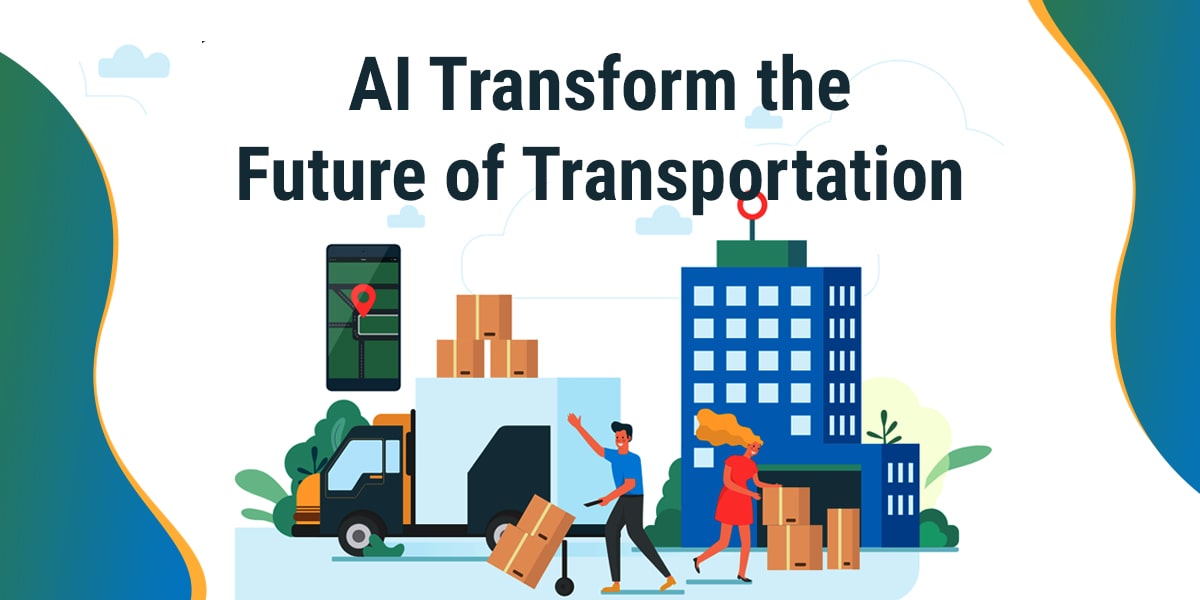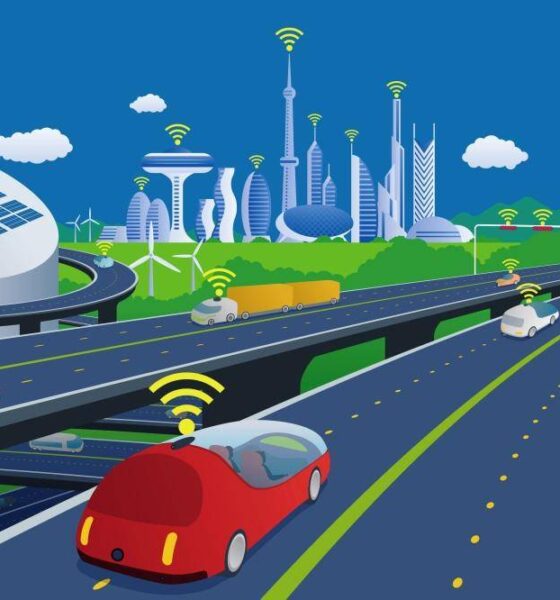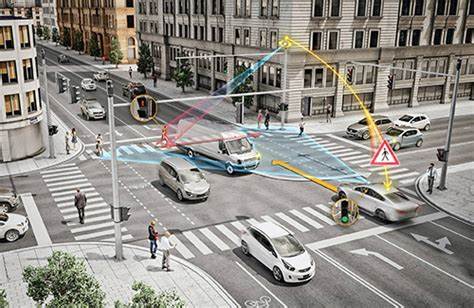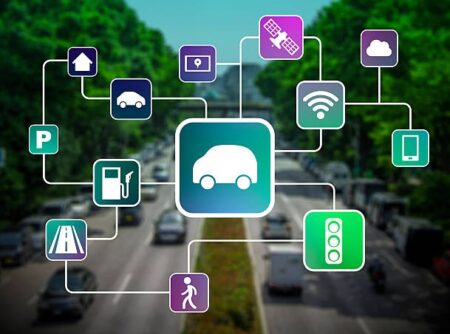
Role of AI in Eco-Friendly Transportation
Introduction
The role of artificial intelligence (AI) in eco-friendly transportation is of increasing importance and relevance in today’s world. As concerns about climate change and environmental sustainability continue to grow, finding innovative solutions to reduce carbon emissions and promote green alternatives becomes imperative. AI, with its ability to analyze vast amounts of data and make intelligent decisions, has the potential to revolutionize the transportation industry and contribute significantly to a greener future.
Historical Background
Throughout history, transportation has played a vital role in human development, enabling the movement of goods and people. However, the traditional methods of transportation have led to substantial environmental concerns, such as air pollution and carbon emissions. The introduction of AI in transportation has brought about a paradigm shift, offering the promise of sustainability and reduced environmental impact.
Key Concepts and Definitions
AI refers to the simulation of human intelligence in machines that can analyze data, learn from it, and make decisions based on patterns and algorithms. When applied to transportation, AI can optimize various aspects to make it more eco-friendly. Eco-friendly transportation refers to modes of transportation that minimize their impact on the environment, primarily by reducing carbon emissions. AI in eco-friendly transportation refers to the integration of AI technologies and algorithms to achieve sustainable transportation solutions.

Main Discussion Points
AI optimization for efficient route planning and traffic management
AI algorithms play a crucial role in optimizing route planning for transportation systems. By analyzing real-time data, including traffic congestion, weather conditions, and road conditions, AI can determine the most efficient routes for vehicles. This optimization not only saves time and fuel but also reduces carbon emissions. Efficient traffic management, facilitated by AI, enables smoother flow of vehicles, minimizing idling time and congestion, further contributing to eco-friendly transportation.
AI integration in electric and autonomous vehicles
The integration of AI in electric and autonomous vehicles is a game-changer in achieving sustainable transportation. AI can optimize battery management and predict range accurately, ensuring efficient energy usage and maximizing the potential of electric vehicles. Moreover, AI enhances autonomous driving capabilities, enabling vehicles to make energy-efficient decisions, such as reducing unnecessary acceleration or braking. By combining AI with electric and autonomous vehicles, eco-friendly transportation becomes more viable and efficient.
AI-enabled smart infrastructure for eco-friendly transportation
The introduction of AI in transportation goes beyond vehicles. AI-enabled smart infrastructure plays a crucial role in promoting eco-friendly transportation. Smart traffic lights and intersections equipped with AI can dynamically adjust traffic flow, reducing congestion and carbon emissions. Additionally, AI-based predictive maintenance allows for timely repairs and upkeep of transportation infrastructure, ensuring its sustainability and longevity.
Case Studies or Examples
Tesla’s use of AI in autonomous driving and energy management
Tesla, a frontrunner in electric vehicle manufacturing, has extensively utilized AI in their vehicles. Through AI-driven autonomous driving capabilities, Tesla vehicles can navigate efficiently, minimizing energy consumption. Furthermore, AI algorithms optimize energy management, ensuring maximum battery efficiency and range.

Uber’s AI-driven route optimization for reducing fuel consumption
Uber, a leading ride-sharing platform, utilizes AI algorithms to optimize route planning for drivers. By analyzing real-time traffic data, Uber’s AI algorithms suggest the most efficient routes, reducing fuel consumption and carbon emissions. This integration of AI in ride-sharing platforms contributes significantly to eco-friendly transportation.
Current Trends or Developments
Recent advancements in AI for sustainable transportation
Advancements in AI for sustainable transportation have been remarkable. Machine learning algorithms continue to improve, allowing for more accurate predictions and decision-making. Additionally, AI is being integrated with emerging technologies such as the Internet of Things (IoT) and Big Data, further enhancing the efficiency and sustainability of transportation systems.
Research findings on AI’s role in reducing carbon emissions in transportation
Numerous research studies have highlighted the positive impact of AI in reducing carbon emissions in transportation. These findings demonstrate that AI optimization and integration in various transportation aspects can lead to significant reductions in fuel consumption and greenhouse gas emissions. Such research findings underline the potential of AI to revolutionize the transportation industry and make it more eco-friendly.
Challenges or Controversies
Privacy concerns and data security in AI-enabled transportation systems
The integration of AI in transportation raises concerns about privacy and data security. As AI relies on vast amounts of data for analysis and decision-making, ensuring the protection of personal information becomes essential. Striking a balance between utilizing data for sustainable transportation and safeguarding individual privacy remains a challenge that needs to be addressed.
?thical considerations of AI decision-making in eco-friendly transportation
AI decision-making in eco-friendly transportation raises ethical considerations. For instance, in autonomous vehicles, AI algorithms must make split-second decisions that prioritize safety while minimizing harm to the environment. Determining the ethical framework for AI decision-making in transportation systems is a complex issue that requires careful consideration and collaboration.

Future Outlook
Potential advancements and innovations in AI for sustainable transportation
The future of AI in sustainable transportation holds great promise. Advancements in AI technology are expected to further optimize route planning, enhance autonomous driving capabilities, and improve energy management in electric vehicles. Additionally, the integration of AI with smart infrastructure will lead to more efficient and eco-friendly transportation networks.
Implications of AI adoption on the future of eco-friendly transportation
The adoption of AI in transportation will have profound implications for the future of eco-friendly transportation. As AI continues to evolve and become more advanced, it will play an increasingly integral role in achieving sustainability goals. The widespread adoption of AI in transportation can revolutionize the industry and pave the way for a greener and more sustainable future.
Conclusion
In conclusion, the role of AI in eco-friendly transportation cannot be underestimated. Through optimization of route planning, integration with electric and autonomous vehicles, and enabling smart infrastructure, AI has the potential to transform transportation into a more sustainable and environmentally friendly sector. With continued advancements and research, AI will play a crucial role in achieving eco-friendly transportation goals and mitigating the impact of transportation on the environment.




